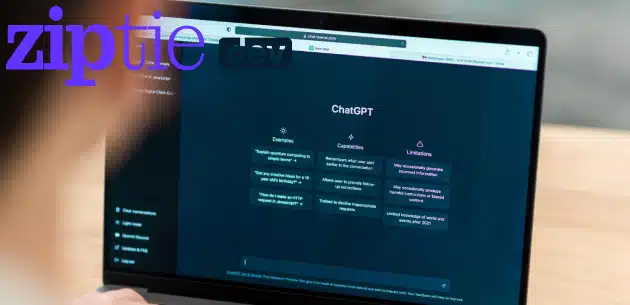Why your Ecommerce business needs a blog, there’s many reasons. You need to get more traffic to your site. You want more traffic to your site. Blogging generates this traffic for your site. We all understand the first part, but surprisingly few businesses grasp the second part.
Traditional businesses subscribe to the idea that the only way to generate sales is engaging in direct sales. Handling inventory, nurturing your email list, and making calls to potential customers will only go but so far. If you’re spending all your time trying to convert customers, then you’ll soon be neglecting reasons for customers to discover your business in the first place.
Blogging is a great way to build your audience and generate more traffic and sales for your business. You shouldn’t treat it as an unnecessary luxury. Even infrequent posts can help your business.
How?
Having more blog posts drives traffic to your site because it improves SEO; it lets you tell stories that convert visitors into customers; and it increases the chances of engagement, not just on social media but also on traditional media. You might increase the chances of being covered by a news site, which are usually seen as more credible sources of opinion. And besides, all that stuff you hear about content marketing? For most businesses, that means writing good blog posts.
Stay with us as we explain how a blog helps your business, and hopefully, at the end of this you too will get it.
How Blogging Helps You Rank In Search Engines
If your audience is small, you might feel the temptation not to blog because you feel that no one will read it anyway. Don’t give in. Not blogging is one way to ensure that your small audience stays small.
Blogging, even when you’re not breaking new ground, helps your site in terms of SEO. This is especially true if you create content that people want to link to.
Why does it help? For the following reasons.
First, blogging means more pages for your site. More pages means more internal links pointing to your homepage.
Internal links are great, but links from other sites are much better. When an article of yours gets shared on social media and gets linked to on other sites, then your page rankings really improve. It’s easier to generate links from interesting content than from your product pages. And the more links you can generate back to your site because of the content you create, the higher you’ll climb in the search engines.
Keeping a regular blog also signals that your site is being updated. Search engines track these changes. Each new page is a sign that your site is active. Google rewards that by ranking your site more highly.
Blogging also gives you the opportunity to rank for more key phrases because it gives you a way to create content around the keywords you’re targeting. Any product page you link to in your blog post will also benefit if someone links to your post. It isn’t just the fact that someone searching for what you write about will have a better chance of coming to your site. You’ll also give yourself the opportunity to create strong internal links with rich anchor text that link to your product pages.
Blogs Are a Marketing Platform For Telling Your Story
The better reason to blog of course is so that you can build an audience of repeat buyers.
Tweets and Facebook updates only go so far when you’ve got something you want to say. Sometimes you need more than Pinterest to promote your products. And while video may be the best medium for telling a story, producing one is usually lots of work.
Just look at the anatomy of a blog. There’s a headline, to lead your readers to know what to expect. You have the space to tell a story. You can include lots of cool visuals. Whatever you tweet fits in a blog post; and you can post videos there too. It’s a very good medium for telling a story.
You want to be able to tell stories. Talking about your product’s great tech specs only get you so far; people respond emotionally to stories.
If you own a business and run a store, chances are you have an interesting story of your founding. Maybe your store started as a side gig that involved into something greater? Maybe you built your business after tapping into the needs of a community? Maybe you were inspired to build something after a trip abroad?
Besides featuring your story, you could be featuring your products. You are one of the worldwide experts on your products; you can describe how they’re made, where they’re from, and their special features. Bring out what’s interesting about them, and it’s more likely for your product to be sold.
So blog, and get bring more attention to your story and your products.
Blogs Get You Noticed
When you’re writing good content that people want to read and share, you’ll rank more highly in search engines. Every link to your site, from social media, other blogs, and whatever else is a signal to Google that your site matters.
Face it: You can only promote your “About us” page so many times on Facebook, and it’s hard to craft more than a few tweets about each of your products. When you write blog posts, you’ll have more to tweet about, and more to share on Facebook. A blog post not only gives you more material for tweets, but also encourages other people to link to you as well. Someone who tweets your blog post almost certainly brings some visitors that you’ve never had before.
Blogging allows you to create content that demonstrates your expertise beyond unproven assertions. It also positions you as a more trusted authority relative to your competitors.
How to Come Up With Blog Post Ideas
You’re not a great writer, you say? You just can’t find the time to devote to blogging?
By this point you should realize that the latter is simply a mistake. Blogging is valuable. If you have the time to maintain multiple social media platforms, then you have the time to write a piece of content every week.
And don’t worry about not being a great writer. Your posts can be short. Think of blogging as the expansion of a tweet or a product description. Or you just want to link to interesting content you’ve found around the web. You can simply embed a video. None of these require a great deal of writing.
It doesn’t have to be something you do every day. Once a week is fine. Just make sure that you post regularly about interesting topics.
Here are a few suggestions for things that you can blog about:
The story of your founding: the history, the vision, and the growth
Your products: where it came from, how it’s made, and its special features
Tutorials for how to use your products
Announcements for a sale
Events you’re running or participating in
Advice on products, not just your own
Company updates
Developments in the industry
Something fun you found on the web. It could but doesn’t have to relate to your products.
Don’t feel limited. If you sell food products, blog about your favorite recipes. If you sell funny t-shirts, link to jokes and cartoons you enjoyed this week. If you sell your own art, you can discuss your favorite paintings. These aren’t hard if you know your products really well.
Conclusion
So, blog. It helps get more customers and helps sell your products.
Consider that something you write will live on for posterity. Something you wrote last year could still be racking up hits. Though you may not have customers now, a post may get thousands of views over its lifetime. Who wouldn’t like to generate a sale based on something they did two years ago?
And what is our very favorite blog? We’ve saved from featuring it until the very end. Everyone at Shopify subscribes to it. And you can, too.

 Marina Lippincott
Marina Lippincott







